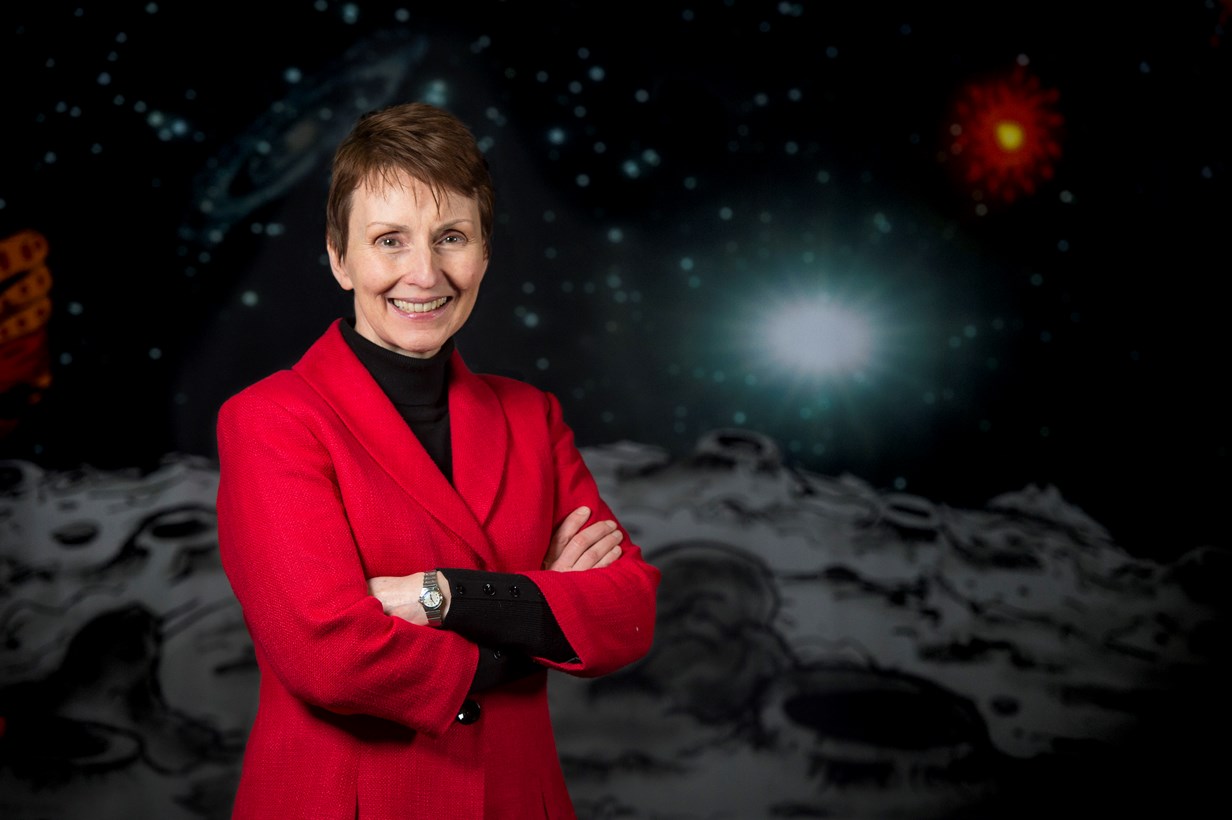Astronaut Helen Sharman OBE joins ROS as Ambassador
Head office
09 Apr 2021
Astronaut Helen Sharman CMG OBE has joined the Royal Osteoporosis Society (ROS) as an Ambassador today, using the knowledge she gained about bones in space as a reminder to the nation about the importance of looking after our bone health.
Helen became the first British astronaut in May 1991 when she launched on a Russian Soyuz spacecraft. Selected from over 13,000 applicants, Helen trained intensively for 18 months in Star City, near Moscow. She spent two days on Soyuz and six days on the Mir Space Station, travelling at 17,500 miles an hour.
During her time aboard the Mir space station, Helen undertook research to examine how her body and her crewmates adapted to spaceflight – including their bones.
Astronauts lose bone density in space at a much faster rate than on Earth, and long spaceflights can weaken their bones dramatically. This is because in space, the amount of weight that bones must support is reduced to almost zero. At the same time, many bones that aid movement are no longer subjected to the same stresses as on Earth. Over time, calcium normally stored in the bones is broken down and released into the bloodstream.
This same principle is what makes weight-bearing and resistance exercise so effective at strengthening bones.

Helen Sharman CMG OBE. Image credit: © National Waterfront Museum, Swansea
These conditions in space make it a unique testing ground for osteoporosis treatment, to the immense benefit of people living on Earth. While this research continues, Helen wants to share her understanding of strengthening bones in space to raise awareness of the importance of good bone health for everybody. She said:
“To see the techniques used by astronauts in space adapted on Earth to treat people’s bones is one of the fascinating legacies of spaceflights. The search for treatments for bone loss in spaceflight is intrinsically linked with research into bone loss associated with osteoporosis on Earth.
“Bone health is a topic we don’t discuss enough. I’m pleased to help raise awareness of bone health and the surprising facts about bones and skeletons - they’re alive, they can heal themselves, and if we look after them when we’re young, we can transform our health and quality of life when we’re older.”
Craig Jones, Chief Executive at the ROS said:
“Helen is a leading science communicator and it’s great to be working with her to raise awareness of bone health. Half of women and one in five men over 50 will develop osteoporosis, but the condition and broken bones are not an inevitable part of ageing.
“There are things we can all be doing to maintain healthy bones from childhood and through our lifetime. This includes eating a healthy balanced diet with adequate calcium, getting enough vitamin D, and taking both weight-bearing and muscle strengthening exercise. What you do in your younger years directly affects your bone health in later life.
“Raising awareness will support people to look after their bones and live well, while also protecting the NHS by reducing the number of broken bones caused by osteoporosis.”
 Search
Search
 Login
Login


